7 Essential Tips for Preventing Frozen Pipes
Winter can be a beautiful season, but it also brings along its fair share of challenges, especially when it comes to your plumbing. Frozen pipes can lead to costly repairs and inconveniences, but fear not! With a little preparation and know-how, you can keep your pipes from freezing and ensure a stress-free winter. In this blog post, we will share seven essential tips to help you protect your pipes from the icy grip of winter.
1. Insulate Your Pipes:
Prevention is key, and insulating your pipes is the first line of defense against freezing. Use foam pipe insulation or heat tape to wrap exposed pipes, especially those located in unheated areas such as basements, crawl spaces, or attics. By providing an extra layer of insulation, you can significantly reduce the risk of frozen pipes.
2. Seal Leaks and Cracks:
Inspect your home for any gaps, leaks, or cracks that may allow cold air to seep in and expose your pipes to freezing temperatures. Apply caulk or weatherstripping to seal these openings, ensuring that your home remains warm and your pipes stay protected.
3. Keep Interior Temperatures Consistent:
Maintaining a consistent temperature throughout your home is crucial during the winter months. Set your thermostat to a minimum temperature of 55°F (12°C) even when you're away. This will help keep the pipes warm and prevent them from freezing.
4. Open Cabinet Doors:
For pipes located within cabinets or vanities, open the doors to allow warm air to circulate. This simple trick helps prevent cold air from getting trapped and keeps your pipes cozy.
5. Let Faucets Drip:
On particularly cold nights, allow your faucets to drip slightly. This continuous flow of water helps prevent pressure buildup and keeps the pipes from freezing. Remember to choose the faucets located farthest from the water source for maximum effectiveness.
6. Disconnect Outdoor Hoses:
Before the freezing temperatures arrive, disconnect and drain all outdoor hoses. Leaving them attached can cause water to freeze inside the pipes and potentially damage them. Store the hoses in a warm area until spring.
7. Invest in Pipe Heating Cables:
For added peace of mind, consider installing pipe heating cables. These cables wrap around vulnerable pipes and provide a constant source of heat, preventing freezing even in the harshest winter conditions. Consult a professional plumber, like Brownie's Septic & Plumbing, for proper installation and guidance.
By following these seven tips, you can safeguard your pipes from freezing and avoid the headaches associated with burst pipes and water damage. Remember, prevention is key, and a little effort now can save you from expensive repairs later.
At Brownie's Septic and Plumbing, LLC, we understand the importance of a well-functioning plumbing system throughout the year. If you need professional assistance or have any questions about winterizing your pipes, don't hesitate to contact us. Our experienced plumbers are here to ensure your plumbing remains in top shape, no matter the season.
Stay warm, stay prepared, and enjoy a worry-free winter with Brownie's Septic and Plumbing, LLC!


[1].2308100738550.jpg)